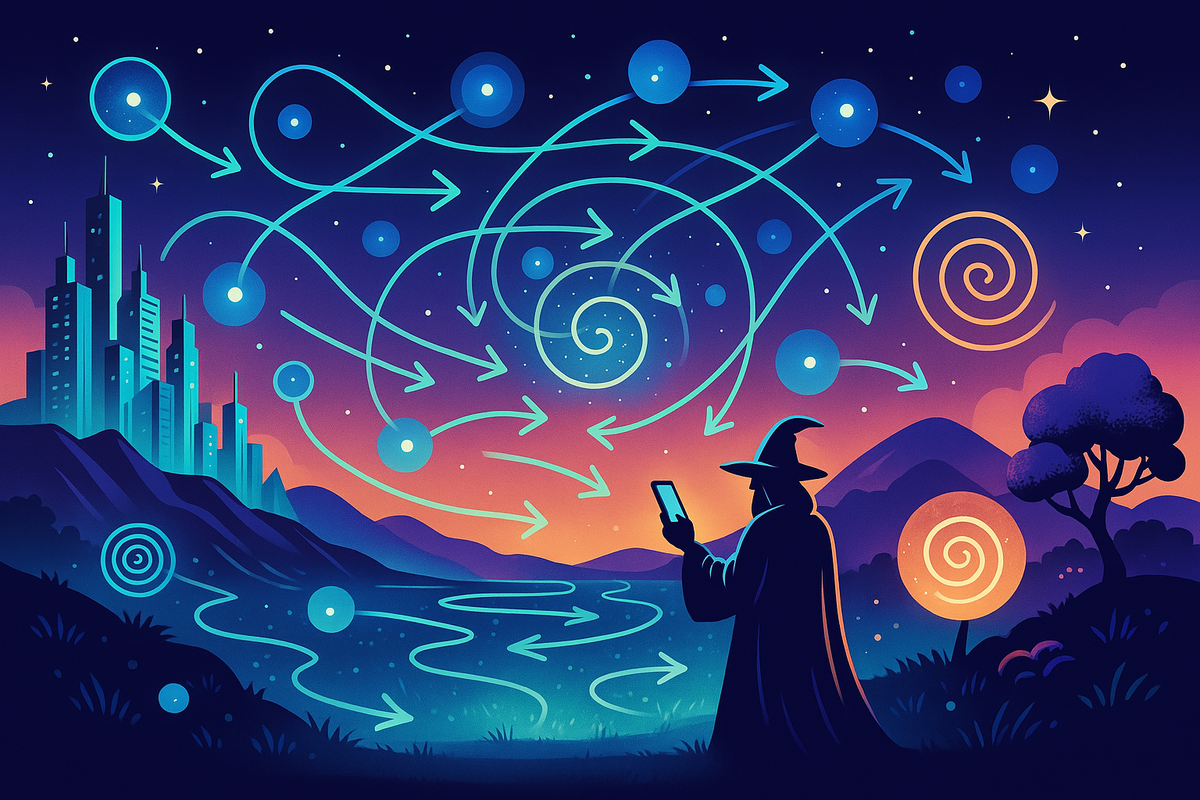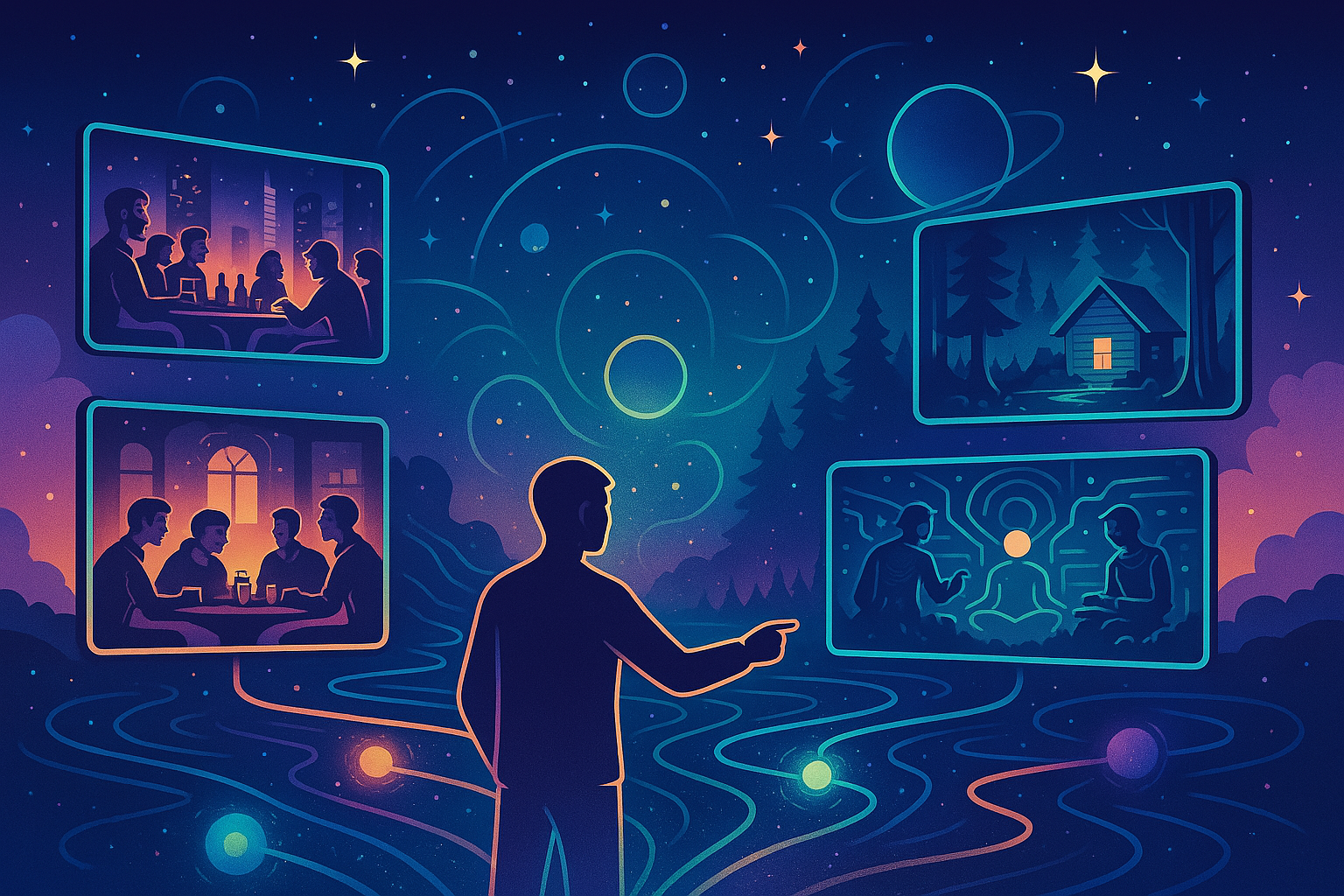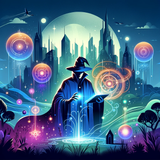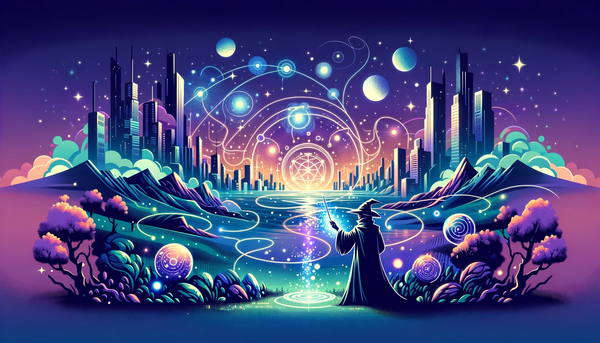Curiosity and Feedback Loops

I’ve been thinking lately about how social media algorithms serve as a microcosm of reality’s broader behavior. They're essentially a sped-up demonstration of the fundamental feedback loop of reality itself — how your small choices continuously reshape the reality you're navigating.
Imagine going out to a bar regularly with the same three friends. At some point, you realize it’s not really your vibe, and you decide to find better company. These new friends naturally introduce new habits; maybe you’re hanging out at coffee shops instead. There, inevitably, you meet more potential friends aligned with this fresh direction, steadily sculpting your future by increments.
But here's the catch — these aren’t grand, deliberate decisions about your future. They're micro-decisions made moment-to-moment, typically based on a simple trade-off: immediate gratification versus delayed, deeper rewards. There's nothing inherently wrong with seeking pleasant moments right now, but we often overlook how these tiny choices continuously recalibrate reality’s algorithm, slowly funneling us toward some narrow set of possibilities.
Social media demonstrates this perfectly. Spend a day tapping on cute cat videos, and soon your entire feed transforms into endless kittens. Your momentary clicks instantly shift the algorithmic weights, creating a feedback loop that determines what you'll see next. But if, on a whim, you decide you're done with cats, your next swipe or scroll nudges you into another probabilistic branch of this digital multiverse, steering your feed toward something entirely different.

This analogy highlights something subtle but critical: curiosity might actually be the optimal heuristic for navigating these feedback loops — online or offline. Curiosity taps into intuition, which itself represents the hidden workings of our brain’s nonverbal half. Our intuitive side, unable to express itself directly in words, guides us instead through bodily sensations and subtle impulses.
Exploring intuition is deeply worthwhile because it bridges our immediate, conscious choices with broader, unconscious understandings about what's potentially enriching or intriguing down the road. My journey into neo-Buddhism, for example, wasn't planned — I stumbled into it through AI circles in Silicon Valley, through researchers casually sharing meditation posts. From there, I drifted toward neuroscience. Each micro-choice — liking certain posts, unfollowing others — nudged me down unpredictable, yet ultimately fascinating pathways.
In real life, these feedback cycles are slower, less visible, but no less impactful. Choosing to go to the store, a bar, or just staying home with a book tonight might seem trivial, yet each decision subtly recalibrates your future possibilities. Reality, like a social feed, feels largely self-generated and self-predicted. Our brains continuously train themselves on what they pay attention to, setting us up to notice certain future opportunities while completely overlooking others.
It's curious — reality isn't fundamentally different from your algorithmic newsfeed. While social media makes these shifts instantly visible, real-life cycles are subtler, slower, yet operate under the same core logic. Paying attention to what genuinely intrigues you now, even if seemingly random or counterintuitive, might be the best strategy for cultivating an interesting and rewarding future.

